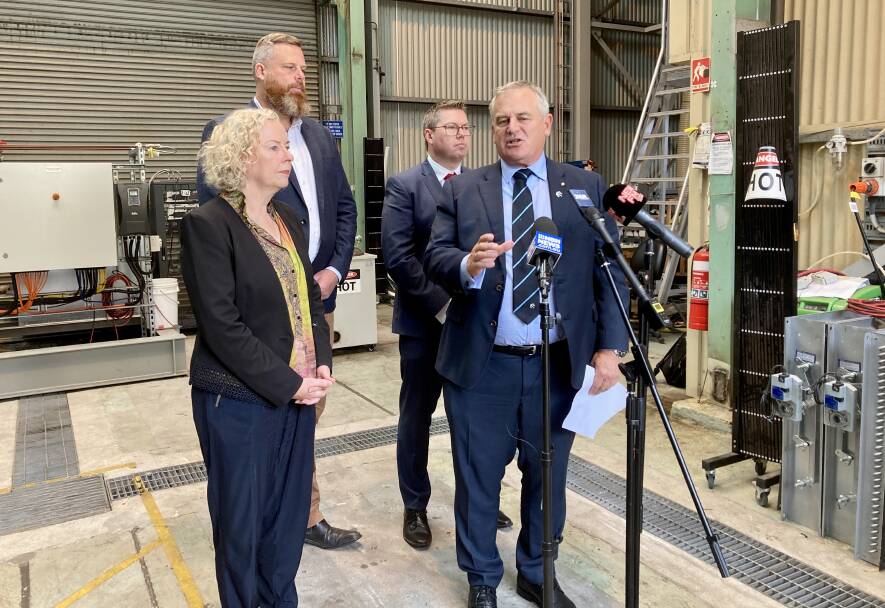
The political love-in for hydrogen continued on Thursday when Labor announced a $16 million commitment to build an energy research and testing centre at University of Newcastle.
University vice-chancellor Alex Zelinsky joined Labor candidates Sharon Claydon, Pat Conroy and Dan Repacholi at the university's Newcastle Institute for Energy and Resources at Shortland for the announcement.
The Labor promise followed the Coalition's budgeted commitments to spend $100 million on preparing Newcastle port for the commercial export of hydrogen and $41 million each on two hydrogen manufacturing plants at Kooragang Island.
Labor has supported the spending allocated to the port and the two hydrogen plants and on Thursday offered its own contribution to what both sides of politics hope will develop into a lucrative export market.
The Labor commitment came a day after Professor Zelinsky joined Prime Minister Scott Morrison at Warners Bay to announce $50 million in funding for a research and business partnership involving University of Newcastle and University of NSW.
Asked if he was pleased with the attention his university had received during the campaign, Professor Zelinsky said: "Yes."
If elected, Labor plans to build a centre to "test and invent solutions to global challenges when it comes to the use of hydrogen and other new energy industries".
The centre would also help train graduates to work in emerging energy fields, including hydrogen, solar power and electricity storage.
Ms Claydon said the testing facility would bridge the gap between researchers and small and medium-sized manufacturers working on new energy technology.
"It's a mechanism to solve problems and rapidly deploy solutions without having the capital costs which are frankly out of reach for most SMEs," she said.
Mr Conroy, Labor's shadow minister assisting on climate change, said Newcastle was part of a "global race" against countries in the Middle East and Scandinavia to develop a hydrogen industry.
"They are putting billions of dollars into this industry, because they know this is where the future jobs are coming from," he said.
"We're in a race that's accelerated with the conflict in Ukraine impacting on the crisis of existing energy choices, so we have to accelerate it in this country."
Professor Zelinsky said the university was well known for its research and translating that research to industrial applications.
"But there's a gap in terms of training and testing and helping transition, so infrastructure specifically dedicated to helping industry to move into the new technology and also the workforce to get the training is a critical missing link," he said.







